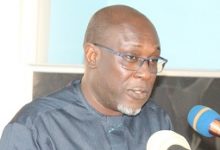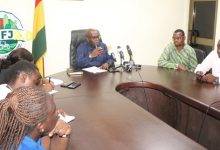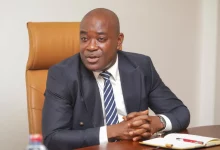Ghana is on the way of receiving $1billion from the World Bank Group (WBG) to support its socio-economic development efforts under a new Country Partnership Framework being developed by the bank.
The four-year partnership, subject to the approval of the WBG Board at its forthcoming meeting would be for projects in areas including energy, education; health and agriculture.
The Ghanaian Times has no doubt that the partnership would be approved because the WBG, a family of five international financial organisations, makes leveraged loans available to developing countries.
One of the organisations, the International Development Association, for example, is always ready to help the world’s poorest countries reduce poverty by providing loans or credits and grants for projects and programmes that boost economic growth, reduce inequalities and improve living conditions.
With other countries and international organisations praising Ghana for its handling of the COVID-19 outbreak without stopping short of not acknowledging how the disease has undermined its economy, the WBG meeting in April, this year, would surely stamp the loan for Ghana.
It can, therefore, be said that this is a done deal but must not pass without comments.
The general public has been persuaded by opposition parties to believe that the country is taking too many loans, which is inimical to its future, yet the truth is that developing or so-called third world countries like Ghana lag behind in many ways in terms of development.
In the circumstances, it would take such loans to help enhance development in these countries and the current opposition parties would have no other alternative than continue the borrowing.
On that score, the arguments should rather concern disbursement of the loans and preparation towards reducing the number.
It is open secret that disbursement of loans has a lot of issues that must be addressed.
For instance, even though the projects in question call for matters of operations, the number of vehicles procured is questionable.
The forthcoming $1-billion loan is meant for projects in such sectors as energy, education, health and agricultureand all the units within the sector ministries assigned particular projects would buy new vehicles.
Sometimes, from all indications, some existing vehicles can be used, yet new ones are procured.
Besides, there would be meetings and consultancy services some of which are not necessary but are organised so that some privileged individuals and organisations can get some free money.
It is a pity that at the end of the day, the calculations would show that the amounts spent on the projects themselves fall far below expectation.
When this happens, delay in paying contractors, shoddy work and over-invoicing become the order of the day, while so-called scheduled officers and their accomplices enrich themselves at the expense of the projects.
It’s about time such corrupt practices in the system were checked but unfortunately state officials, particularly the politicians and other top officials, are usually absolved of any blame or corrupt practice.
The Ghanaian society is a religious one and so when it comes to matters of life that border on morality, that truth cannot be shelved.
A September 18, 2021 publication on https://www.indexmundi.com has it that Ghana is made up of Christians 71.2 per cent (Pentecostal/Charismatic 28.3%, Protestant 18.4%, Catholic 13.1%, other 11.4%), Muslims 17.6%, and traditional 5.2%.
What this means is that corruption, for instance, should not even be mentioned among such people because every religion condemns all acts of dishonesty, including corruption.
However, corruption is strife, meaning the people, particularly public officials, have ignored their religious principles and developed seared conscience, which makes them gleefully shortchange the state.
The Ghanaian Times appeals to state officials given positions of authority such as those assigned the execution of public projects to allow their conscience to prick them to stop shortchanging the state.
This way Ghana can narrow its development gap and subsequently reduce the number of loans it will contract and save future generations the repayment of unproductive loans.




